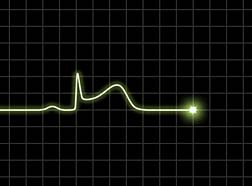 In February of this year, Glaxo released a statement commenting on the ongoing 'Action to Control Cardiovascular Risk in Diabetes' study (ACCORD) study, and while presenting a positive outlook overall, did observe a word of caution. "We certainly need to know a lot more about these data and what they mean, given the complexity of the disease and its management.
In February of this year, Glaxo released a statement commenting on the ongoing 'Action to Control Cardiovascular Risk in Diabetes' study (ACCORD) study, and while presenting a positive outlook overall, did observe a word of caution. "We certainly need to know a lot more about these data and what they mean, given the complexity of the disease and its management."These findings appear to raise questions about how aggressively blood sugar should be reduced in managing diabetes among the high risk patients in the ACCORD study. The increased risk does not appear to be caused by any single medicine or combination of medicines. The same drugs are used in both groups of patients who are either managed aggressively or to standard blood sugar control; yet the small increase of events is seen in the group who are aggressively managed."
Four months later, it appeared the cautionary tone was mitigated after results of two studies were released. According to statements released by Glaxo June 10th of this year on the outcomes of the Veteran Affairs Diabetes Trial (VADT) as well as the aforementioned ACCORD trial, Glaxo concluded that Avandia "was not associated with increased risk for heart attacks and CV death while a second trial, The Action to Control Cardiovascular Risk in Diabetes Study Group (ACCORD), found that AVANDIA was not associated with any increased risk of death."
Specifically, the VADT trial "did not show that intensive blood sugar control (HbaA1c levels below 7 percent) had a statistically significant effect on reducing major (cardiovascular) CV events associated with diabetes. However, it was found that there was a favorable trend in reducing all CV events, except CV death and inoperable heart disease," among patients in the more intensive arm of the trail. In other words, these patients were treated more aggressively with Avandia, and other medications, than others in the trial.
Intensive therapy was also the theme for the ACCORD trial, which investigated whether or not intensive glycemic control would reduce CV events in patients with Type 2 diabetes who had either established cardiovascular disease, or additional CV risk factors.
The ACCORD study found that, as compared with 'standard therapy,' the use of
"intensive therapy to reach the study's A1C goal for 3.5 years did not significantly reduce major CV events. Although they found an increase in CV deaths among these high-risk patients who were in the intensive arm, the death rates from ACCORD were substantially lower than investigators predicted at the outset of the trial."
This might be interpreted as good news, especially when one reads an excerpt purported to be from a New England Journal of Medicine editorial that Glaxo has posted on its web site. "…the ACCORD trial investigators concluded that patients in the standard-control group and those in the intensive-control group had similar risks and rates of death, whether or not they were prescribed rosiglitazone."
However, there still appears to be questions. In their analysis, the investigators noted, "preliminary nonprespecified exploratory analyses of episodes of severe hypoglycemia after randomization and differences in the use of drugs (including rosiglitazone), weight change, and other factors did not identify an explanation for the mortality finding."
As for the VADT trial, the positive finding of a "favorable trend in reducing all CV events" was tempered with a caveat: "…except CV death and inoperable heart disease," among patients in the intensive arm.
Dr. Amir Hanna, MB, BCh, FRCPS, FACP is the Director of the Diabetes Clinic at St. Michael's Hospital in Toronto. He was quoted in the Glaxo statement as saying, "these results should reassure patients of the safety of Avandia."
It should be noted that nowhere in either clinical trial summary, do the authors state that the drug is safe. Rather, the trial findings serve as an assessment of risk factors, which, subject to interpretation, appear lower than first thought.
Avandia continues to be accompanied by a black box warning, the strongest warning available from the US Food and Drug Administration (FDA) without pulling the drug from the market completely.
Not to be discounted were the findings last year of noted researchers Steven Nissen MD, and Kathy Woloski, MPH, who found after analyzing publicly-available short-term clinical studies comparing Avandia to other diabetes treatments that Avandia use increases risk of heart attack by 43 percent, and the risk of death from heart disease by 64 percent.
The overall risk was small, with 86 heart attacks and 39 deaths out of 15,560 Avandia patients, vs. 72 heart attacks and 22 deaths among 12,283 patients not taking Avandia.
READ MORE AVANDIA LEGAL NEWS
"There is little evidence for using this drug," University of Washington researcher Bruce M. Psaty, MD, PhD, told WebMD last year. "The purpose of reducing blood sugar is to prevent cardiovascular events. Now the possibility of cardiovascular benefit associated with Avandia appears remote -- indeed, it appears linked to harm. So the rationale for prescribing it at this time is just not clear.
"This is not an immediate risk. It is the absence of an expected benefit and the possibility of harm over the years," he says. "Patients should talk with their doctors and see if they are getting the benefit they expected. Doctors can look at the data and say whether there is a compelling reason for them to prescribe this drug.
"I don't think there is."
